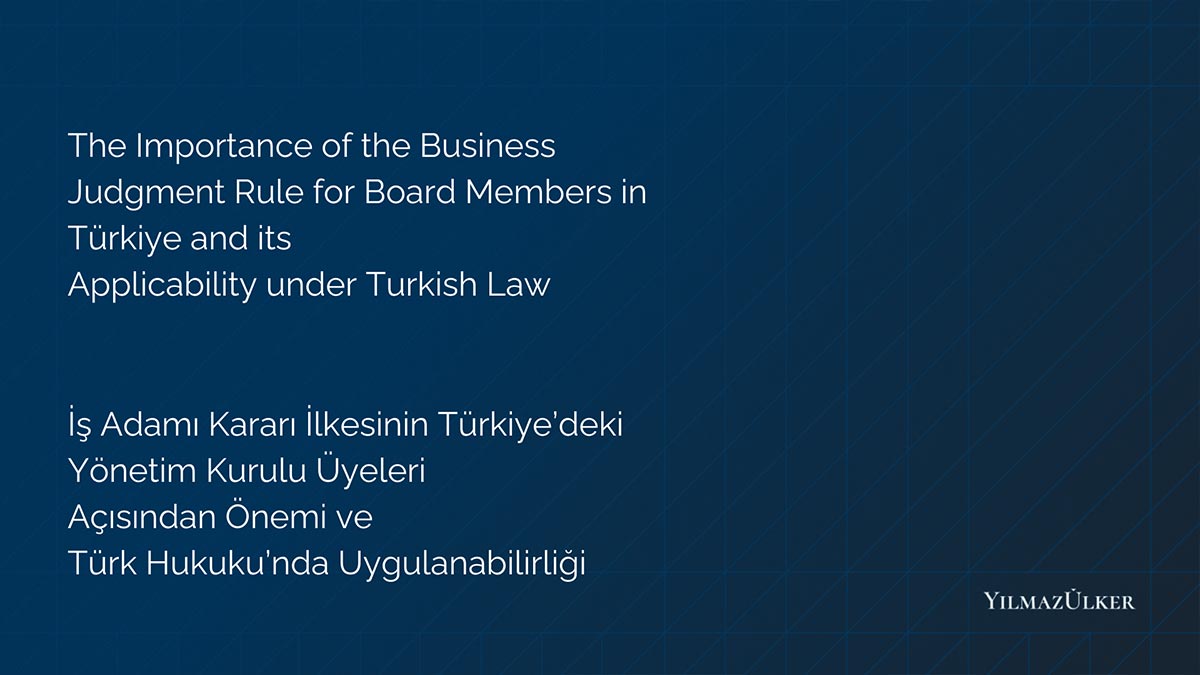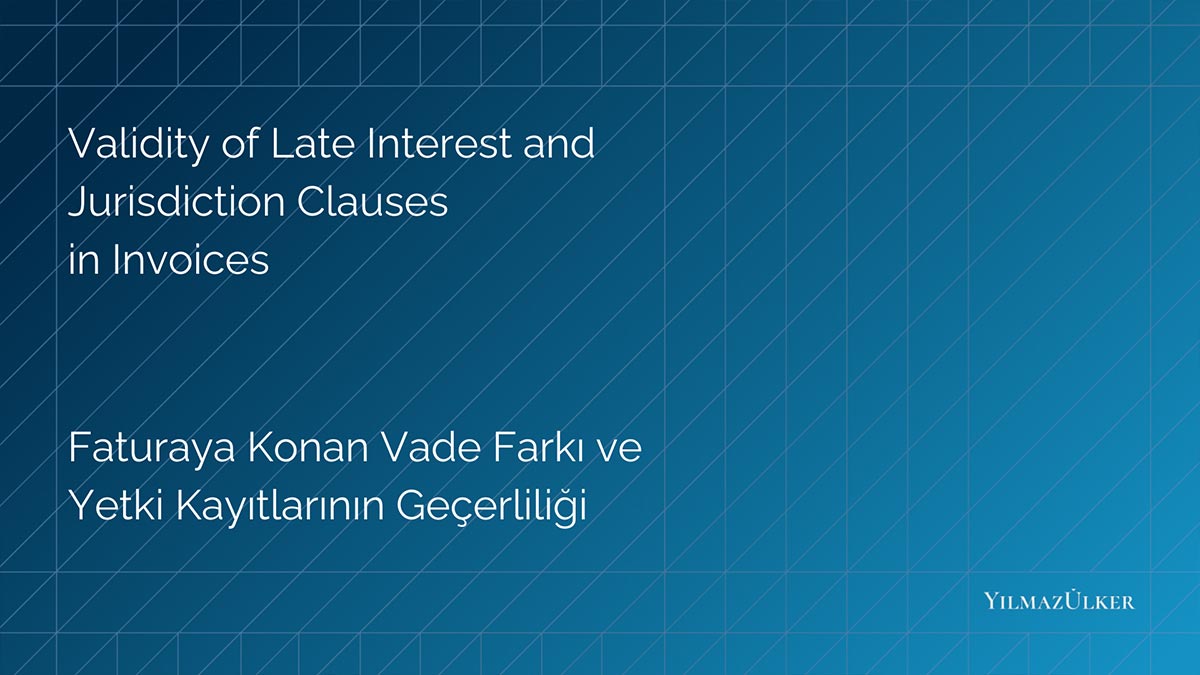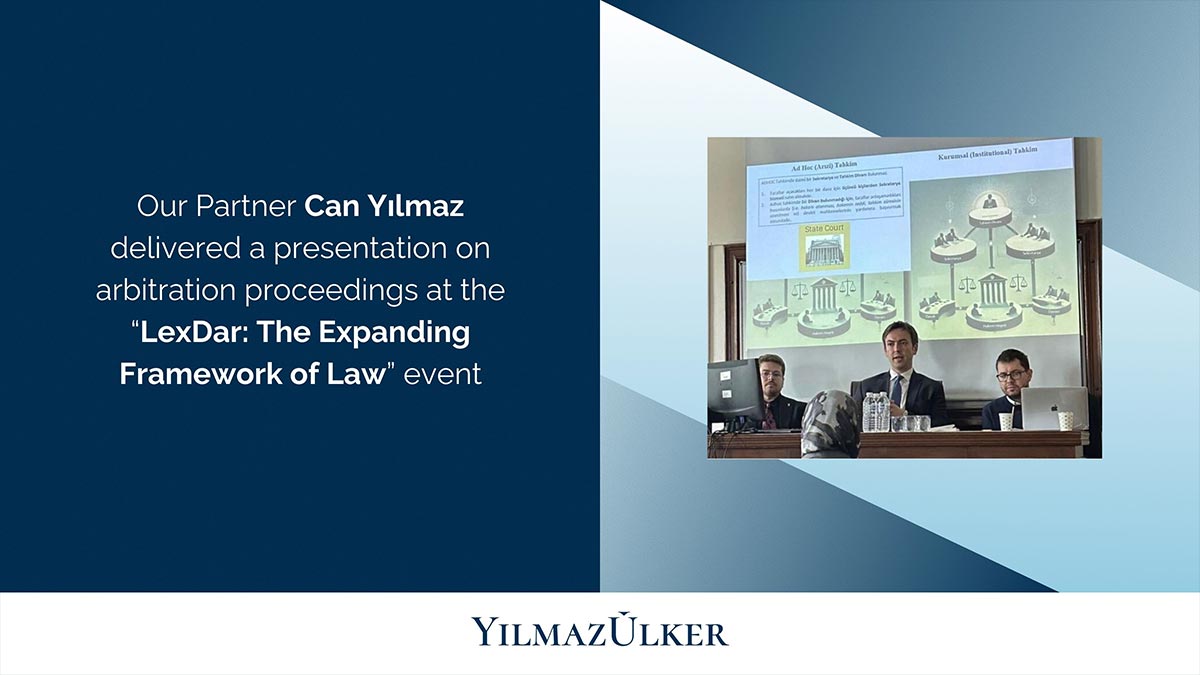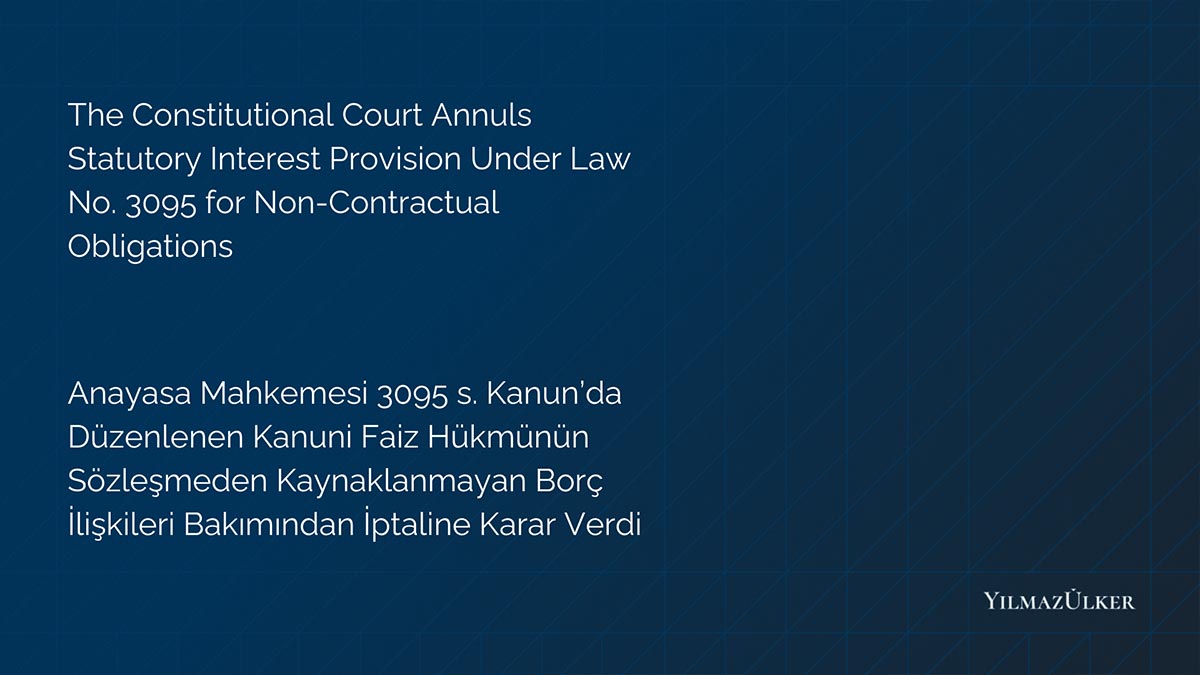News & Publications

The Importance of the Business Judgment Rule for Board Members in Türkiye and its Applicability under Turkish Law
Business Judgment Rule
The business judgment rule is a principle of corporate law that aims to protect executives from liability provided that they act with the care expected of a prudent director. The principle recognizes as a presumption that the executives have obtained the necessary information before taking an action/decision, and that they make decisions in good faith and in the best interests of company, without any conflict of interest [1]. In practice, it is thought that if there is no such presumption to protect the executives, they will be under the threat of being held liable for the damages that may arise in the liability lawsuits that may be filed against the executives, and this situation will cause them to act passively when making decisions and thus create weakness in the management of company.
The principle is said to have been first discussed historically in the 1829 decision of Percy v. Millaudon by the Louisiana Supreme Court in the United States ("US") [2]. In the dispute in question, although the shareholders of the bank filed a liability lawsuit against the members of the bank's board of directors, the court decision stated that if the error is "the kind of error that a prudent person could make," then the board members should not be held responsible for the decisions. Today, the business judgment rule principle finds application not only in most states of the US but also in the legal systems of countries like the United Kingdom, Australia, and many other developed nations.
The Importance of the Business Judgment Rule for Board Members in Türkiye
Executives, who play a highly influential role in the management of their companies, are often authorized individuals within the framework of the board of directors or management board to make necessary decisions and to execute them in the best interest of the company. Since the decisions taken directly impact numerous factors such as the company's cash flow, growth rate, and share value, they hold significant importance for the company. Consequently, executives bear substantial responsibility in this regard. Since decision-making often means choosing the right one among many good alternatives, this process is extremely risky. Indeed, when the outcome of a decision is beneficial, it contributes to the success of the company, while if the outcome is negative, it reflects solely the failure of the executives. Especially considering Türkiye’s economy has faced numerous unforeseen circumstances and crises in recent years, such as the Covid-19 pandemic, global and local inflation, geopolitical risks, and so on, the business judgment rule principle gains even more significance for board members in Türkiye in terms of legal responsibility.
Applicability of the Business Judgment Rule in Turkish Law
The management of joint-stock companies is conducted by the board of directors unless authority is delegated otherwise. The board of directors is authorized to make decisions on all matters except those within the authority of the general assembly. Pursuant to Article 365 of the Turkish Commercial Code numbered 6102 (“TCC”), the board of directors has the authority and duty to manage the company within the boundaries set by the imperative provisions of the law.
According to Article 369 of the TCC, board members are obliged to perform their duties with the care of a prudent manager and to safeguard the interests of the company in accordance with the principle of good faith. Although there is no direct reference to the business judgment rule in the article itself, the preamble of the article states that “…The prudent director standard acknowledges that a board member may make a 'business judgment' in accordance with corporate governance principles and is based on the principle that the member should not be held responsible in cases where the risk arises therefrom…” and that a director who acts with the diligence of a prudent director should not be held liable in cases where the risk arises therefrom. Likewise, the departure from the concept of “foresight” [3] in the repealed Turkish Commercial Code numbered 6762 ("RTCC"), which was interpreted very strictly by the Turkish Court of Cassation, also indicates in the current law that the principle of business judgment rule is considered in the diligence standard of board members [4].
Although there is a reference to the business judgment rule principle in the preamble of the article, Turkish courts have so far refrained from making references to the business judgment rule principle in their decisions. In this context, the limits of liability for board members are delineated in accordance with the company's articles of association and compliance with the law, as outlined in Article 553 of the TCC.
In summary, consistent observance of the business judgment rule principle by Turkish courts would encourage executives, and thus companies, to act more boldly in local and global investment and collaborations, similar to executives in countries where the principle is applied.
Bibliography
- [1] Hacımahmutoğlu, Sibel. “İşadamı Kararı mı Yoksa Ticari Muhakame Kuralı mı?”. Banka ve Ticaret Hukuku Dergisi, C.30, (2014). S.99-145.
- [2] https://news.mobar.org/verdict-on-business-judgment-rule/#12
- [3] The concept of the “prudent merchant”, which was used by the Turkish Court of Cassation as a criterion based on the diligence standard during the era of the RTCC, has now been abandoned. The term “prudence/foresight” (basiret) envisaged in Article 320 of the RTCC, was intentionally omitted. This is because the Turkish Court of Cassation defined the standard of the prudent merchant with expectations that were deemed harsh, even excessive.
- [4] Özdemir, Semih. İş Adamı Kararı İlkesi ve Türk Hukukunda Uygulanabilirliği. Ankara, 2017. S.188.
The above information reflects the general assessments of YılmazÜlker Attorney Partnership ("YılmazÜlker") regarding the subject matter and do not constitute legal opinion or legal consultancy services. Before taking any action based on the matters stated herein, it is recommended to seek professional legal advice by considering the specific circumstances of the case. YılmazÜlker shall not be held liable for any consequences arising from or in connection with the content of this document.






#YılmazÜlker #businessjudgmentrule #boardmembers #legalliability #publication